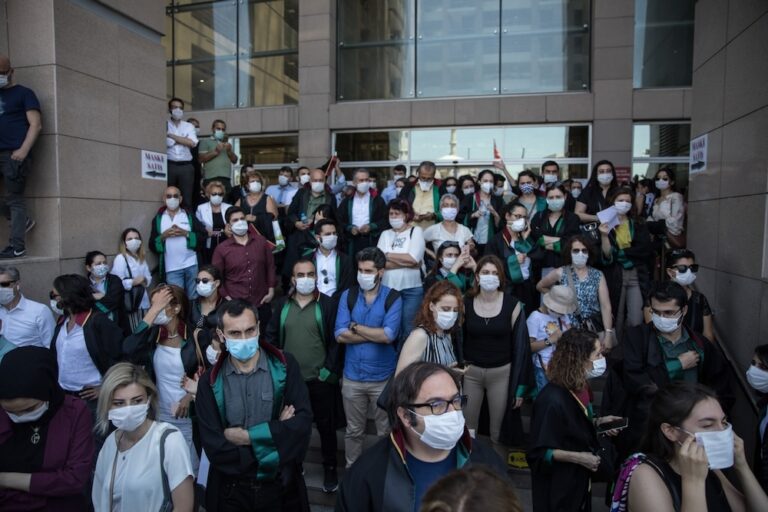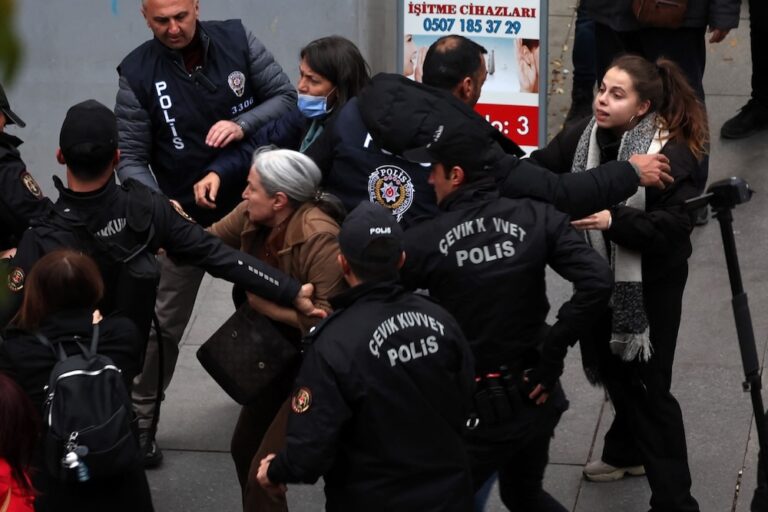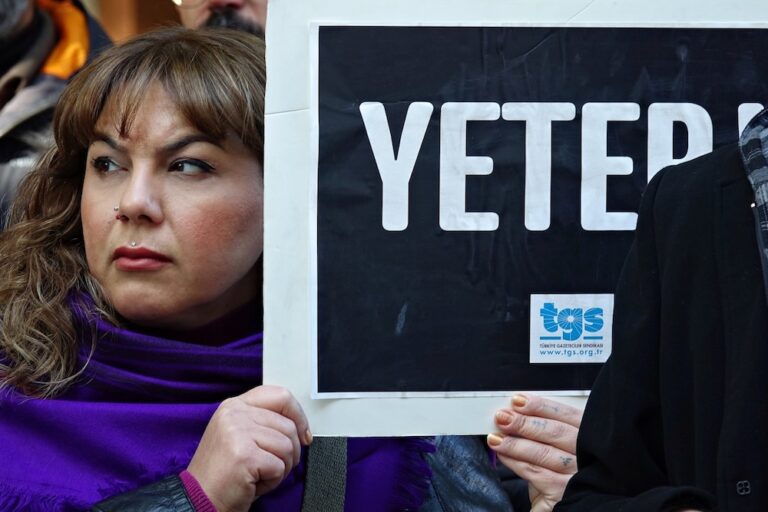According to the report, 220 people, 104 of whom are journalists, stood trial in 2010 in cases linked to freedom of thought or expression.
(BIANET/IFEX) – 28 March 2011 – According to data compiled by the BIA Media Monitoring Report, 220 people, 104 of whom are journalists, stood trial in 2010 in the scope of freedom of thought and expression. Thirty-three people were sentenced to 365 years in prison under the Anti-Terror Law. Thirty journalists are in jail.
Six journalists spent at least part of 2010 in jail because of their writings, while 24 journalists were incarcerated due to operations in the context of major investigations such as “Ergenekon”, the “KCK trial”, the “Revolutionary Headquarters case” or the “Sledgehammer” investigation. Compared to 2009, the number of convicts under the Anti-Terror Law (TMY) multiplied by six in 2010.
The sum of fines based on convictions of the government of Turkey before the European Court of Human Rights (ECHR) rose from TL472,392 (approx. €236,000) in the previous year to TL547,300 (€274,000) in 2010.
At least 2,000 trials were opened on alleged charges of “violation of confidentiality” and the “attempt to influence a fair trial”. A significant number of these lawsuits were filed against the newspapers “Zaman”, “Taraf”, “Bugun”, “Yeni Safak”, “Star” and “Vakit”.
The 2010 Media Monitoring Report by the Independent Communication Network (BIA) Media Monitoring Desk revealed that a total of 220 people, 104 of whom were journalists, were tried in the scope of procedures related to freedom of expression and freedom of thought.
The BIA Media Monitoring Report also points to the government’s approach to the Kurdish question and to the oppression of people who criticized judicial applications within various investigations, who spoke up against violations of human rights and advocated for the right to conscientious objection.
The report refers to the struggles of 777 people summarized on 56 pages under the headings “killed journalists”, “attacks and threats”, “arrests and detentions”, “trials related to press freedom and freedom of expression”, “corrections and legal redress”, “European Court of Human Rights”, “reactions to censorship” and “RTUK applications”.
( . . . )



